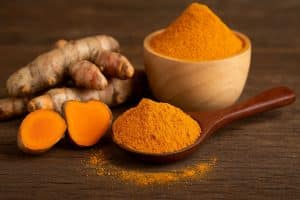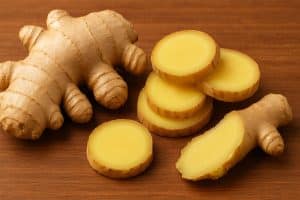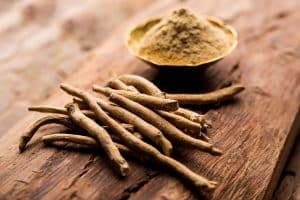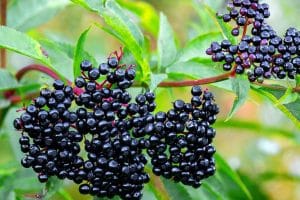In today’s fast-paced world, modern pharmaceuticals have become the primary choice for treating a wide variety of health issues. However, despite significant advances in drug development, there remains a vital role for traditional medicinal plants—many of which offer complex benefits that pharmaceuticals simply cannot replicate. These natural remedies have been used for centuries, boasting unique combinations of compounds that work synergistically to promote healing and wellbeing.
In this blog, we explore 7 medicinal plants that pharmaceuticals can’t replace, highlighting their therapeutic potential and how they complement modern medicine. Whether you’re a healthcare professional, herbal enthusiast, or simply curious about natural alternatives, understanding these powerful plants can broaden your perspective on holistic health.
1. Cannabis (Cannabis sativa)
Cannabis is perhaps the most prominent example of a medicinal plant that has challenged pharmaceutical norms. While the pharmaceutical industry has developed isolated cannabinoid medications (like Epidiolex and synthetic THC-based drugs), whole-plant cannabis offers a complexity and synergy that single compounds cannot match.
Why Cannabis Stands Out
- The Entourage Effect: Cannabis contains over 100 cannabinoids (THC, CBD, CBG, etc.) and hundreds of terpenes and flavonoids that work together to modulate the body’s endocannabinoid system. This synergistic interaction often leads to more balanced and effective therapeutic outcomes than isolated compounds.
- Wide-Ranging Therapeutic Uses: Cannabis is used to treat chronic pain, epilepsy, anxiety, nausea, inflammation, PTSD, and more. It offers a multi-targeted approach to symptoms and underlying causes.
- Personalized Medicine: Different strains and formulations allow patients to customize their treatment according to individual needs and preferences.
While pharmaceutical cannabinoids are valuable, the holistic and adaptable nature of whole-plant cannabis remains irreplaceable for many patients.
2. Turmeric (Curcuma longa)
Turmeric, a vibrant yellow spice commonly used in Indian cuisine, has powerful medicinal properties primarily due to its active compound curcumin. It’s revered for its anti-inflammatory, antioxidant, and immune-modulating effects.
Unique Benefits of Turmeric
- Complex Bioactivity: Unlike synthetic anti-inflammatory drugs, turmeric acts on multiple biological pathways simultaneously, helping reduce inflammation without the side effects of NSAIDs.
- Antioxidant Power: Turmeric protects cells from oxidative stress, which is linked to aging and chronic diseases like cancer and Alzheimer’s.
- Supports Digestive and Joint Health: Long used in Ayurvedic and traditional Chinese medicine, turmeric supports liver detoxification and joint mobility.
Despite curcumin supplements being available, the natural matrix of turmeric root provides enhanced absorption and a broader range of health-promoting compounds.
3. Echinacea (Echinacea purpurea)
Echinacea is a popular herb traditionally used to boost immune function and fight off colds and respiratory infections. Its complex mixture of alkylamides, polysaccharides, and phenolic compounds contributes to its immune-enhancing properties.
Why Pharmaceuticals Can’t Fully Replace Echinacea
- Immune Modulation: Echinacea doesn’t just stimulate the immune system; it helps balance it, enhancing defenses while preventing overactivation.
- Antiviral and Anti-Inflammatory: It has demonstrated antiviral properties and reduces inflammation, making it effective against a range of infections.
- Adaptability: Echinacea’s effects can vary based on the part of the plant used and extraction methods, providing a customizable immune support tool.
Pharmaceutical cold remedies may address symptoms but often don’t offer the broad immune support that echinacea naturally provides.
4. Ginger (Zingiber officinale)
Ginger is a versatile root widely used as both a spice and a medicinal plant. It is highly effective for digestive ailments, nausea, and inflammation.
What Makes Ginger Special
- Natural Anti-Nausea Agent: Ginger is often recommended for pregnancy-related nausea, chemotherapy side effects, and motion sickness, with fewer side effects than pharmaceutical antiemetics.
- Anti-Inflammatory and Pain Relief: Gingerols and shogaols, its active compounds, reduce inflammation and have analgesic effects, useful in osteoarthritis and muscle pain.
- Digestive Support: Ginger promotes digestion and helps relieve bloating, gas, and indigestion naturally.
While drugs may treat symptoms, ginger’s ability to support digestive health holistically and safely is unmatched.
5. Ashwagandha (Withania somnifera)
Ashwagandha is a revered adaptogenic herb used in Ayurvedic medicine for centuries to help the body resist stress and restore balance.
The Power of Ashwagandha
- Stress Reduction: Ashwagandha modulates cortisol levels, reducing chronic stress and anxiety more gently than many pharmaceuticals.
- Cognitive Support: It supports brain function, memory, and focus, offering neuroprotective benefits.
- Energy and Vitality: Ashwagandha helps improve stamina and endurance, making it popular among those dealing with fatigue or chronic illness.
Adaptogens like ashwagandha provide nuanced, whole-body support that pharmaceuticals aimed at single symptoms can’t replicate.
6. Primrose Oil
Commonly referred to as “evening primrose,” the Oenothera plant is native to North America and is recognized for its bright yellow blooms and longstanding role as a natural health remedy.
For centuries, Indigenous communities across North America have used evening primrose as both a food source and a healing aid. Today, the oil extracted from its seeds is used to help manage a wide range of conditions, including rheumatoid arthritis, asthma, premenstrual syndrome (PMS), and more.
Evening primrose oil is particularly well-known for supporting women’s health. Clinical research has highlighted its potential to relieve symptoms of PMS, hot flashes, gestational diabetes, and assist with cervical ripening. Additionally, a study involving patients with multiple sclerosis found that evening primrose oil significantly improved cognitive function, energy levels, and overall quality of life.
7. Elderberry
For millennia, the fruit and flowers of Sambucus nigra—commonly known as elderberry—have been valued both as a nutritious food and a natural remedy for various health issues. Even Hippocrates, the famed physician of Ancient Greece, referenced its healing properties in his writings.
The liquid extract derived from elderberries has demonstrated antiviral and antibacterial activity, showing effectiveness against common pathogens and influenza viruses. In recent years, it has become especially popular as a natural remedy for the common cold.
A 2016 study found that elderberry extract significantly reduced the duration and severity of cold symptoms in international air travelers. An earlier study in 2004 also concluded that elderberry extract may serve as an effective, safe, and affordable treatment for influenza, although larger-scale research is still needed to confirm those findings.
Additionally, elderberry extract is believed to offer potential antiviral benefits against the herpes simplex virus.
Why Medicinal Plants Still Matter in Modern Healthcare
Medicinal plants like cannabis, turmeric, and ashwagandha offer complex chemical profiles that interact synergistically within the body, which is difficult for isolated pharmaceuticals to mimic. They often come with fewer side effects and can support overall health and balance, not just treat isolated symptoms.
Additionally, plants have been used safely for centuries, providing a rich history of traditional knowledge that informs modern herbal medicine.
Conclusion
While pharmaceuticals are indispensable for many acute and chronic conditions, several medicinal plants offer unique benefits that modern drugs cannot fully replicate. These plants bring a holistic, multi-targeted approach to health, supporting not only symptom relief but also general wellbeing.
Incorporating these natural powerhouses alongside conventional medicine can provide a more balanced and personalized path to health.








